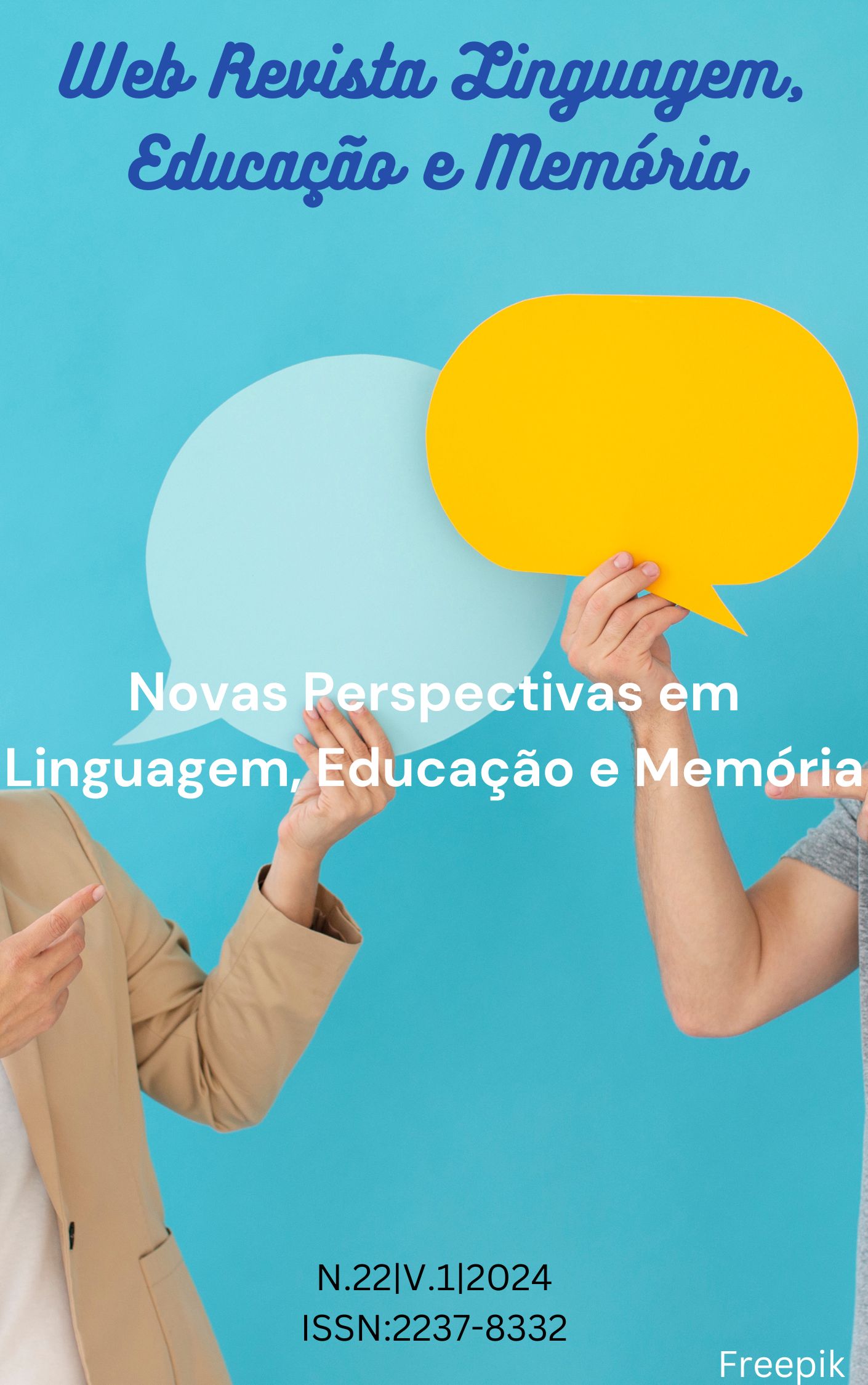Literary writing and its contributions to developmental education
DOI:
https://doi.org/10.61389/wrlem.v1i22.6766Keywords:
Literary writing, Historical-Cultural Theory, Developmental ActivityAbstract
The article presents an experience report on literary writing as an Activity that provides developmental education. Aware that learning takes place through socially and culturally mediated Activity and that the school is the privileged space to introduce students to the most elaborate culture, I developed the project Literary Writing: Challenges and Possibilities, which had as objective to provide first-year students from Integrated Technical High School at the Federal Institute of Rondônia, Cacoal and Porto Velho Calama campuses, significant writing. The results obtained allow the statement that when teachers create new needs in students, respect the inseparable union between affective and cognitive, they feel motivated to learn and see meaning in what they do. Thus, through the Activity, there are elements that support a humanizing and developmental education as defended by the Historical-Cultural Theory that will permeate this discussion.
References
ASBARCH, Flávia da Silva Ferreira; NASCIMENTO, Carolina Picchetti. Criança Não é Manga, não amadurece: conceito de maturação na teoria histórico-cultural. 2013. Disponível em: http://geplei.sites.ufms.br/files/2015/10/Criança-não-é-manga.pdf. Acesso em 15 mar.2018.
FACCI, Marilda Gonçalves Dias. Vigotski e o processo de ensino-aprendizagem: a formação de conceitos. In: MENDONÇA, Sueli Guadelupe de Lima; MILLER, Stela (orgs).Vigotski e a escola atual: fundamentos teóricos e implicações metodológicas.2.ed. Araraquara, SP: Junqueira&Marin, Marilia, SP: Cultura Amazônica, 2010.
GOMES, Claudia Aparecida Valderramas. O lugar do afetivo no desenvolvimento da criança: Implicações educacionais. Disponível em: http://geplei.sites.ufms.br/files/2015/10/O-lugar-afetivo-no-desenv.-da-criança.pdf. Acesso em: 12 mar.2018.
LEONTIEV, Alexei. Uma Contribuição à Teoria do Desenvolvimento da Psique Infantil. In: VIGOTSKII, Lev S;LURIA, Alex; LEONTIEV, Alexei. Linguagem, desenvolvimento e aprendizagem.11. Ed. São Paulo: Ícone, 2001.
MELLO, Suely Amaral. Algumas implicações pedagógicas da Escola de Vygotsky para a educação infantil. 1999. Volume 10. N.1(28). Disponível em: https://www.fe.unicamp.br/pf-fe/publicacao/1990/28-artigos-mellosa.pdf. Acesso em 25 mar.2018.
MELLO, Suely Amaral. Infância e humanização: algumas considerações na perspectiva histórico-cultural. Volume 25. 2007. Infância e Humanização. In: Perspectiva - Revista do Centro de Ciências da educação. Volume 25, n. 1- janeiro/julho 2007. Florianópolis.
MELLO, Suely Amaral. Ensinar e aprender a linguagem escrita na perspectiva histórico-cultural. Volume 10.2010. Disponível em: https://dialnet.unirioja.es/descarga/articulo/4000981.pdf. Acesso em 25 mar.2018.
REPKIN, Vladimir.V. Ensinodesenvolvente eatividade de estudo. Journal of Russian and East European Psychology, Volume. 41, nº. 4, setembro- outubro 2003, pp. 10-33. Disponível em: www.seer.ufu.br/index.php/emrevista/article/view/2505. Acesso em25 mar.2018. DOI: https://doi.org/10.2753/RPO1061-0405410510
VYGOTSKI, Lev.Semenovich. Obras escogidas II. Madrid, Centro de Publicacionesdel M.E.C. y Visor Distribuciones, 1993.VIGOTSKII, Lev Semenovich. Aprendizagem e desenvolvimento intelectual na idade escolar. In: VIGOTSKII, Lev Semenovich; LURIA, Alexander Romanovich; LEONTIEV, Alexis. Linguagem, desenvolvimento e aprendizagem. Tradução Maria da Penha Vilalobos. 7.ed.São Paulo: Ícone, 2001.
VYGOTSKY, Lev. A formação social da mente. Tradução José Cipolla Neto; Luis Silveira Menna Barreto; Solange Castro Afeche. 3.ed. São Paulo: Martins Fontes: 1989.
VIGOTSKI, Lev. S. Teoria e método em psicologia. São Paulo: MartinsFontes, 1996.


